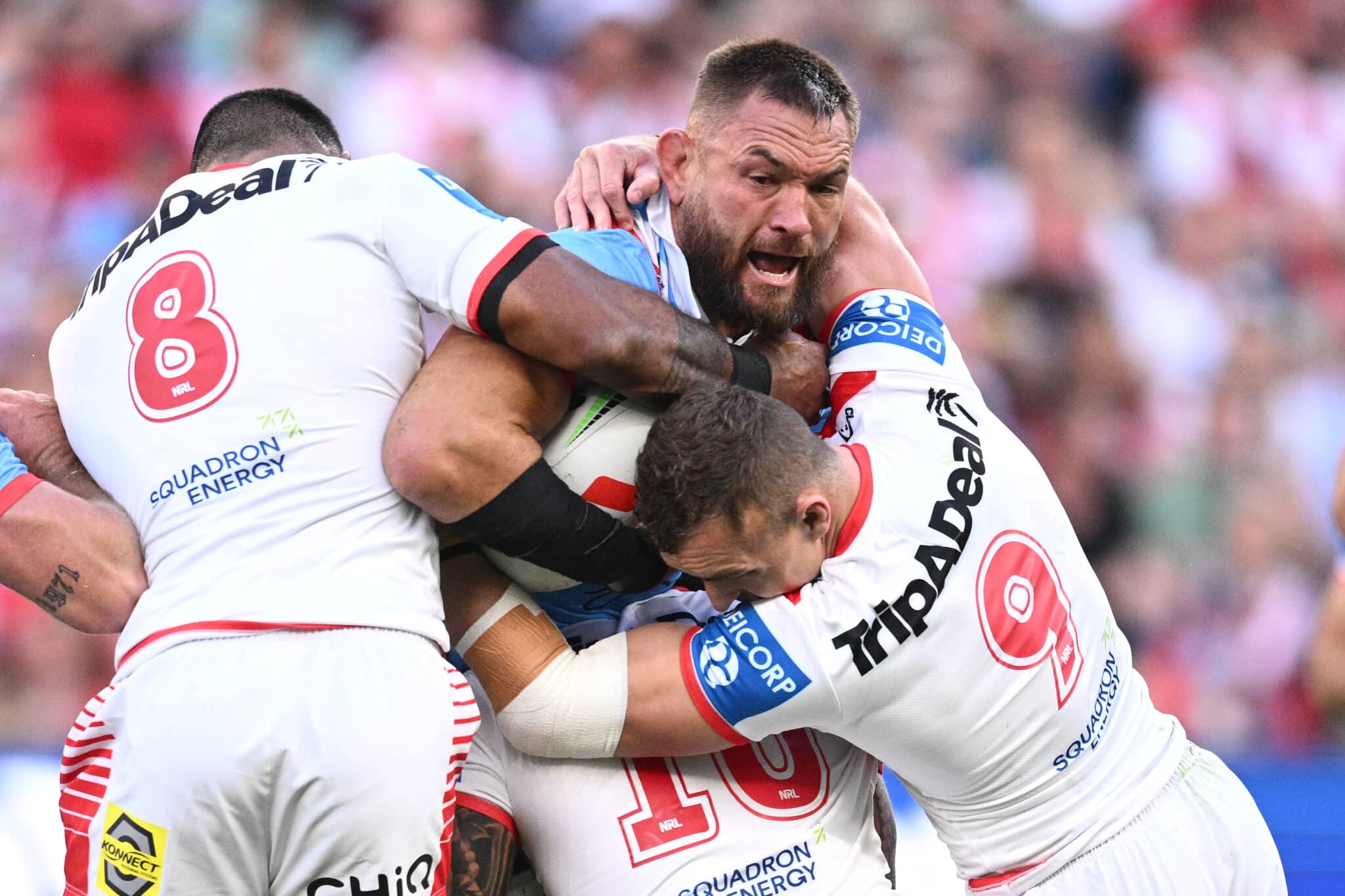
Pressure is mounting on the NRL to ban kick-offs in the hope of stamping out dangerous head collisions. But instead of solving the problem, this decision would distort the very fabric of how the game is played.
After gaining traction in early April, the argument is now riding on the back of the ugly events at the traditional Anzac Day clash between the Sydney Roosters and St George Illawarra Dragons.
The blockbuster halted almost as soon as it had begun when Saints’ centre Moses Suli fell down concussed after the very first hit-up of the game following Zac Lomax’s long-field kick-off.
Suli was the middleman in a three-person tackle on stampeding Chooks’ prop Jared Warea-Hargreaves and was knocked out in a nasty head collision, taking no further part in the contest.
Concussions and head injuries have been all the talk in the sporting world these last 10-15 years, not just in the NRL. And for good reason too.
When these gladiator-size athletes are returning the ball at full speed into a wall of defenders charging from more than 50 metres away, things can go wrong sometimes.
That’s a no-brainer, no pun intended.
It’s fair to say the NRL has become exceptional at recognising the toll these knocks take on players.
The competition understands the genuine ramifications this has on player health, to the point where it can even mean early retirement, which we saw most recently with Cronulla enforcer Dale Finucane just last week.
But at what point will we have no solution to a problem except to alter the fundamentals of the game?
While the criticism fairly stems from the concern for player welfare, changing the kick-off rule would be a classic case of treating the symptoms and not the cause, because the kick-off is not a threat to player welfare.
Rather, it’s the way players are approaching the tackle.
Throwing three defenders into the first hit-up from kick-off is just asking for trouble. The middle defender has no way of wrapping his arms around the ball carrier and nowhere to safely position his head.
He’s stuck between a rock and a hard place, which usually means banging your head against the rock—in this case, a bulldozing 100kg-plus attacking forward.
Coaches and players need to develop techniques to safely enter the fast-paced tackle scenarios. That might mean removing one player out of the equation.
Maybe there’s another, better technique that I can’t think of.
But surely that has to be the first discussion we have before feeding into a knee-jerk reaction to the kick-off?
Let’s suppose the NRL do make the change.
Well, concussions are still bound to happen. They’re not exclusive to the kick-off. In fact, the majority of head injuries happen during the regular hit-ups throughout the game and will continue to.
Why? Because as is the case everywhere, sometimes accidents just happen.
Accidents like head collisions, whether off the kick-off or not, can’t always be anticipated.
Accidents are by definition, unintended, unexpected, and almost always unavoidable.
I get that we need to work on reducing head injuries. But to think we can eliminate every chance of injury in sport, including accidental ones, is wishful thinking.
If the kick-off is banned, we open ourselves to a rabbit hole of potential changes in the name of safety that jeopardise what makes the NRL so exciting.
Ask any footy fan and they’ll tell you the first hit-up off the kick-off has always been and remains one of the most exciting elements of the game.
A powerful first run of the ball in attack up against a determined and unwavering defensive wall sets the tone for what’s to come in the next 80 minutes.
Without the kick-off, when concussions don’t disappear, we’ll have to move onto banning the next closest thing to it—the kick at the end of a set.
When that doesn’t work, the only option we’ll have left is to play touch footy.
The NRL must use prudence when it considers rule changes. It’s all well and good to make them, but if it’s going to create more problems than it solves, then it doesn’t really solve anything.
Fix the approach, not the rule.
Rugby league is a sucker for rule changes. Sometimes for the better, sometimes for the worst. I only hope this time around it doesn’t give in to the hype, or we may hurt the game for good.
